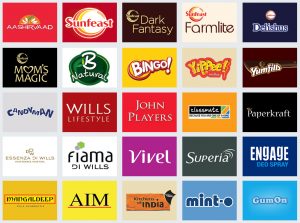ITC Ltd, the Kolkata-based cigarette-to-noodles maker, has set an inward focus of producing Rs65,000 crore from packaged foods portfolio by 2030 to achieve its objective of Rs1-trillion income from non-cigarette packaged goods at that point.
“ITC’s foods division will be a huge supporter of our objective of accomplishing Rs 1,00,000 crore turnover from the new FMCG businesses by 2030. Our vision is to contribute no less than 65% of this turnover,” said Hemant Malik, divisional CEO (Food Division), ITC.
As indicated by ITC, its branded packaged food business crossed Rs 8,000 crore in the financial year finished 31 March 2017 (FY17).
Presently, it needs to collect Rs 65,000 crore by offering branded packaged food—from Re1 confections to Rs 1,000 chocolate boxes, throughout the following 13 years.
While the number may appear to be aspiring, ITC’s objective might be achievable in the event that it develops at an aggravated yearly development rate of 17.49% (in food business) consistency over next 13 years. Amid the previous 13 years, food business organization Britannia Industries Ltd has developed at a CAGR of 17.48% and Nestle India Ltd has developed at 11.01%. ITC has become speedier at 17.97% amid the previous 13 years, yet that incorporates its income from cigarettes, as indicated by information from BSE. Yet, the number (target revenue from food business by 2030) is almost double of ITC’s revenue from its core cigarette business in the year to 31 March 2017.
The organization revealed its income from cigarettes at Rs 34,001.98 crore and aggregate income at Rs 55,001.69 crore, as indicated by filings with BSE. Branded packaged food is a generally new business for the organization. It wandered into the food business in 2001 that is 90 years after it began offering tobacco items in India as a feature of enhancement to gradually decrease reliance on tobacco. To accelerate development of its banded packaged food business, Malik said the organization will upgrade its portfolio in the current classifications, venture into contiguous ranges, tap new nourishment classifications and attempt to make new ones.
“In two years, we’ll turn into the biggest branded packaged food company in India,” he included. As indicated by the organization, as of now its branded packaged food business is the third biggest after Parle Products Pvt. Ltd and Britannia Industries Ltd. Development in the branded packaged food business will be fuelled by the organization’s entrance into natural product, vegetables and ocean depths, including one new products every quarter.
“Besides snacks, which is a huge opportunity, there’s dairy and we’ll also look at impulse segments like mass-market chocolates. We’ll have a wide portfolio in staples as a category, and we are exploring health-based products,” said Malik.
“Riding on an extremely solid sourcing system, hearty coordinations and store network administration, and positive economies of scale, our item improvement group guarantees that the atta we offer to clients is of the most predominant quality. With the assistance of the agri-business, we are dealing with growing new wheat developing locales, nearer to the point of assembling and nearer to business sectors to guarantee conveyance of the freshest item,” he said.
To smaller scale target customers, ITC has begun creating local variations over the food products portfolio to oblige nearby inclinations.
It has as of late created mixed flavors under the ITC Master Chef mark exceptionally for the southern district. Earlier this month, ITC chief executive Sanjiv Puri had outlined the importance of branded food business the “new ITC” that the current management is creating based on an eight-point strategy.
Among ITC’s existing portfolio of packaged food products, Ashirvaad atta (wheat flour) is the highest revenue gainer at Rs 3,500 crore, followed by biscuits brand Sunfeast, which crossed Rs3,000 crore.
“Such offices will decrease wastage from numerous dealing with and transportation by co-finding assembling and circulation offices. This will significantly improve inventory network effectiveness and guarantee freshness of products,” said Malik.
Malik also said the company still needs to strengthen reach in the rural areas. “This needs to be worked out,” he added.
At present, ITC products reach around 5.8 million of the estimated 10 million retail outlets in India. Of this, ITC’s direct reach is limited to around two million shops.
In a recent note, brokerage firm Jefferies estimated 11% earnings per share (compounded annual growth rate) over FY2017-20.
“Other FMCG businesses have seen healthy performance from packaged foods brands such as Sunfeast, Aashirvad, Bingo and Yippee, while personal care categories have been subdued. We remain positive on foods and stationery part of the portfolio. However, a slew of new launches like juices, dairy, chocolates, etc., and personal care losses would limit segment margin expansion potential,” Jefferies said in a note on 6 September.
